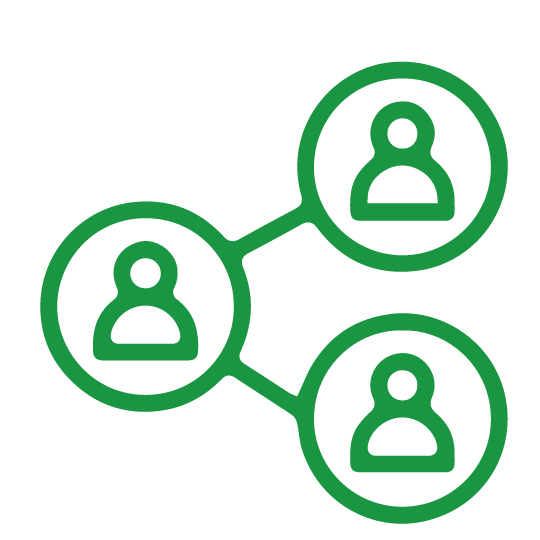An issue that regularly arises in organisations and on which Maarten Mookhoek advises is the interpretation and positioning of the control function. Recently, a CFO told him that he had had to deal with some nasty slips resulting from poor cooperation between the various controllers in his organisation.
I recognised the story from my own consulting practice where I often work with boards to improve the control function. Initially, the trigger to engage with an organisation is often quite different. For example, it may be that a quarterly report from one of its divisions is not up to scratch. Or that investment decisions have been taken without the group top being aware of them. Often, the true cause later turns out to be misunderstandings and a lack of good communication between the controllers.
The theory
What you see is that in many organisations, the controller's job is divided into different roles. Business controllers in the divisions report to their divisional directors and deal with management support. They mainly think along with their respective boards in formulating strategies and their implementation. There is also the group controller in charge of controlling the overall organisation. The division of tasks seems to work well 'on paper'. But that is the theory, because in practice it often turns out very differently.
Trusted advisor
The division of control roles regularly leads to friction between the group controller and the business controllers. In itself, this is a healthy tension, but regularly they do not get along. According to the group controller, there is only one solution: all controllers should be managed centrally and report to him. The business controllers and their boards think differently. They want the business controllers to fall hierarchically under their divisional director. That is the only way they can properly fulfil their role as trusted advisor, they feel. If you zoom out for a moment, you will see that it actually comes down to the question: who does the business controller belong to? Of the division or of the central group management?
First of all, it is perfectly legitimate for the group top to want an up-to-date and accurate picture of the organisation's financial situation. At the same time, there is a need at divisional level for financial specialists who can provide close support to their boards. Both desires are legitimate and can coexist perfectly well.
Risks
It is a situation that occurs in many organisations. If a team of controllers does not work well together, all kinds of dangers lurk. Private shops emerge, operating according to their own methods and their own views, creating gaps in the lines of defence. In addition, discussions about missing or incorrect information take up time that could have been spent on business decisions.
Too much focus on hierarchy
It often fails to reach a solution because the discussion focuses on the organisational structure and the hierarchical arrangement of the 'heads'. It proves valuable to also look at the issue from other angles, such as the process side, personnel aspects, IT systems, methods and tools, corporate culture and management style. In line with Simons' philosophy ('Levers of control'), there are more roads that lead to Rome. The control function can perform well even without centralisation, for instance, if there is a vital network of controllers with joint recruitment and selection, a development and training plan and job rotation.
Exploring problems
A first step is to bring all controllers together and to explore and discuss the challenges together in several sessions. This can lead to new insights and solutions that gradually provide a broadly shared picture of how to move forward. These could be improvements in processes, methods, IT applications, personnel and - indeed - hierarchical organisation. Controllers are well trained and proud of what they can do. I know from experience that they enjoy thinking along. I see that in such a design process, they prefer to prioritise their professionalism over loyalty to their business unit. They are excellent at breaking free from a particular personal position and effortlessly recognise the importance of a well-functioning control function.
Would you like to receive more information on this topic? Then please contact Maarten Mookhoek at 06-51670371 or maarten.mookhoek@improven.nl.





















